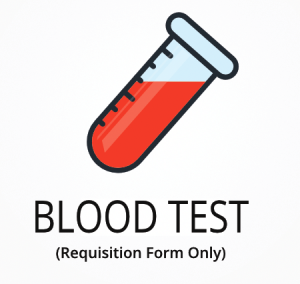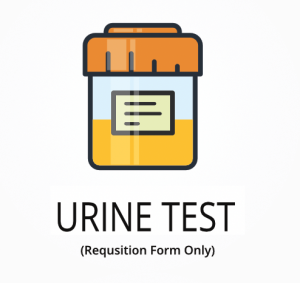Ordering the Basic Immune Evaluation CD4 CD8 Ratio
Ordering the Basic Immune Evaluation CD4 CD8 Ratio helps measure the balance between two types of white blood cells, CD4 and CD8 T cells, which play a key role in the immune system’s response to infections and autoimmune conditions. This test is often used to monitor immune function in people with chronic infections, autoimmune disorders, or those undergoing certain treatments. Interestingly, the CD4 CD8 ratio can also provide early clues about immune system changes before symptoms appear, making it useful for tracking subtle shifts in immune health.
When ordering this test, you can expect several specific benefits:
- Tracks changes in immune cell counts over time for better management of chronic conditions.
- Helps identify immune system imbalances that may not show up in routine blood work.
- Supports treatment decisions for people with autoimmune or infectious diseases.
- Assists in monitoring the effects of medications that impact immune function.
- Offers a detailed breakdown of T cell subtypes, not just total white blood cell counts.
Who Should Consider Immune System Ratio Testing
People who have ongoing fatigue, frequent infections, or unexplained joint pain may benefit from this test, especially if they are managing a long-term condition and want to understand how their immune system is functioning. For example, someone who has been feeling run down for months and is unsure if their symptoms are related to their immune system could use this test to get clear answers.
Ordering this test may also be helpful in these situations:
- Monitoring immune status during or after treatment for chronic viral infections.
- Evaluating immune function in people with autoimmune conditions like lupus or rheumatoid arthritis.
- Checking immune balance before starting immunosuppressive therapy.
- Assessing immune recovery after a bone marrow or organ transplant.
- Tracking immune changes in people with unexplained neurological symptoms, as immune cell ratios can sometimes shift before other lab results change.
This test gives a clear picture of how different types of T cells are working, which can help guide treatment choices and track progress. Delaying this test could mean missing early signs of immune imbalance, which may affect how quickly you and your doctor can respond to changes in your condition.
Preparing for T Cell Ratio and Immune Panel
Fasting is not required for this test, so you can eat and drink as usual before your blood draw. Always follow any instructions or special guidance your doctor or healthcare provider gives you to make sure your sample is collected correctly and your results are as useful as possible.
Labs Included When Ordering Your Basic Immune Evaluation CD4 CD8 Ratio
| Test Name | Reference Range | What This Measures | Low and High Levels of Basic Immune Evaluation CD4 CD8 Ratio |
|---|---|---|---|
| Absolute and Percentage CD3 Count | Absolute: 690-2540 Percentage: 60-85 |
CD3 cells are all T cells, which help the body fight infections and control immune responses. This test shows the total number and percentage of T cells in your blood. |
High levels mean your immune system may be reacting to infection or inflammation.
Low levels mean your body may have trouble fighting infections or could be affected by immune suppression. |
| Absolute and Percentage CD4 Count (Helper T Cells) | Absolute: 490-1740 Percentage: 28-57 |
CD4 cells, also called helper T cells, help coordinate the immune response. This test measures how many of these cells are present and what percent they make up of total T cells. |
High levels mean your immune system may be highly active, possibly due to infection or inflammation.
Low levels mean you may be at higher risk for infections or immune system problems. |
| Absolute and Percentage CD8 Count (Suppressor T Cells) | Absolute: 180-1170 Percentage: 19-48 |
CD8 cells, or suppressor T cells, help control and end immune responses. This test shows both the number and percentage of these cells in your blood. |
High levels mean your immune system may be working hard to control infection or inflammation.
Low levels mean your body may not be able to regulate immune responses as well. |
| CD4 CD8 Ratio | 0.86-5.00 | This ratio compares the number of helper T cells (CD4) to suppressor T cells (CD8). It helps show if your immune system is balanced or if there is a shift in immune function. |
High levels mean there may be an overactive immune response or a drop in CD8 cells.
Low levels mean there may be a loss of CD4 cells, which can happen in certain infections or immune conditions. |
| Complete Blood Count (CBC) with Differential and Platelets | WBC: 3.8-10.8 Platelets: 140-400 |
This test checks all types of blood cells, including white blood cells, red blood cells, and platelets. It helps spot infections, inflammation, and other blood-related issues. |
High levels mean possible infection, inflammation, or other blood disorders.
Low levels mean possible bone marrow problems, immune suppression, or bleeding risk. |
Reference ranges can change over time. For the most current values, visit the Quest Diagnostics lab test directory.
Basic Immune Evaluation CD4 CD8 Ratio FAQ
Is there Basic Immune Evaluation CD4 CD8 Ratio testing near me?
You can find a nearby location for Basic Immune Evaluation CD4 CD8 Ratio using the patient service center locator, which also lists mobile phlebotomy options for those who need easier access due to mobility issues or ongoing immune monitoring.
What is the cost of the test?
The price for this test includes all fees, including sample collection at patient service center locations. Ordering this test is worth it if you need to track immune cell changes that may affect your treatment plan.
How often should I retest?
Retesting is usually recommended every 3 to 6 months for people with ongoing immune conditions or those on immune-modifying treatments. Regular testing helps track changes in T cell counts and ratios, which can guide treatment adjustments.
How accurate is the test?
This test uses flow cytometry, a method that counts and analyzes immune cells with high precision; specificity is 99.5% and sensitivity is 99.2%. All tests at TrueHealthLabs.com are performed by CLIA-certified labs, meeting strict quality and precision standards.
Important Notes
- Test cannot be collected in NJ, NY, MA, or RI.
- For those with autoimmune concerns, it is suggested to run this test during times of flare-ups or when feeling “bad”.
Medical Review Board
Reviewed by Jeff Donohue M.D. from Body Logic and Brady Hurst DC, CCCN. Written by True Health Lab’s team of editorial health contributors.
Disclaimer: This information is for educational purposes only and not intended as medical advice. Consult your healthcare provider for personalized guidance.
Why Customers Trust True Health Labs - What People are saying
Also rated 4.6 out of 5 based on 3452 ShopperApproved reviews- See all TrueHealthLabs.com reviews.







